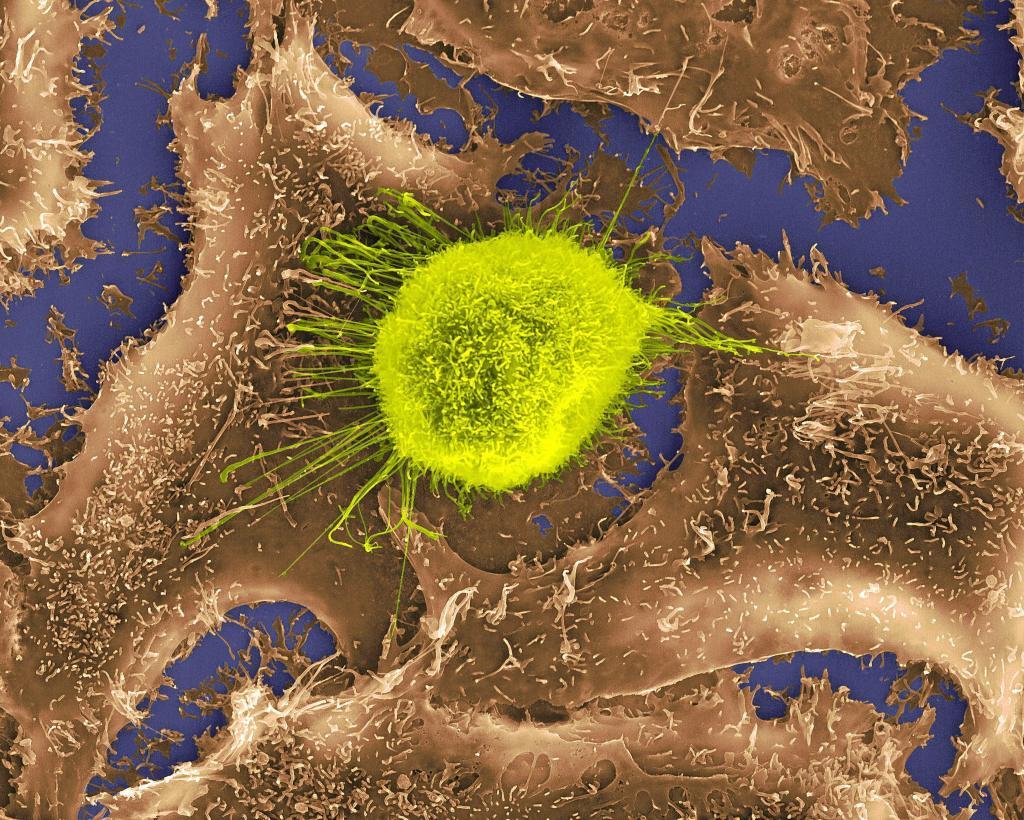There is no virus capable of eliminating all known types of cancer cells known to date. If you read something similar, be suspicious. It is not true. However, it can be said that one of the lines of research that most interest and hope is awakening in recent years in the field of oncology has to do with therapy based on oncolytic viruses, a novel concept that consists in modifying genetically a specific virus in order to kill cancer-affected cells without damaging healthy ones.
They are designed specifically in the laboratory so that they follow a very clear road map: penetrate the cancer cells, replicate inside them to infect them and cause their death, although they will still be years until they become a reality in the clinic.
Already in the mid-nineteenth century and throughout the twentieth century, cases of cancer patients who contracted an infectious disease and entered into brief periods of remission have been reported. Viruses were beginning to be seen as a possible alternative. As an article published by the Spanish Society of Biochemistry and Molecular Biology (SEBBM) points out, "for more than 100 years, interest in using them as experimental agents for the treatment of cancer was maintained," but it was not "until the end of the years 90, thanks to technical advances, when the first clinical trials with genetically modified viruses began. "
As a result, between 2015 and 2016 it was possible to make the leap to the clinic with the commercialization of a medication for the intratumoral treatment of melanoma (Tamilogén laherparepvec). It is the first and only oncolytic virus approved in the United States, Europe and Australia.
In this case, the virus used is derived from herpes simplex. Its genome is modified and, in addition, "it is loaded with a gene that encodes a protein that stimulates the immune system against cancer," explains Manuel Ramírez Orellana, of the Advanced Therapies Unit of the Oncohematology Service of the Niño Jesús Hospital in Madrid.
Except for this already commercialized drug, everything else is framed in pure and hard research . Currently, there are different groups of experts studying this same idea of oncolytic virotherapy, from different viruses and with several versions. For example, with human adenovirus, human reovirus or Vaccinia derivatives.
Precisely this week, the British newspaper 'The Daily Telegraph' echoed an investigation conducted at the Comprehensive Cancer Center of City of Hope (Los Angeles, USA) that works with an oncolytic virus designed from vaccinia viruses, which "They are the ones that were used worldwide to vaccinate the population against smallpox," explains Juan Rojas, a Spanish researcher who is an expert in this type of oncolytics who works at the Ludwig Maximilians University in Munich (Germany).
According to 'The Daily Telegraph', the virus created by Dr. Yuman Fong and developed by the biotechnology company Imugene , dubbed CF33 (combination of genomic sequences of multiple strains of Vaccinia virus), "can reduce all kinds of tumors in mice" and human trials in Australia will begin early next year.
Patients with triple negative breast cancer, melanoma, lung cancer, bladder, gastric and intestinal cancer are expected to participate. The objective: to identify in which type of diseases it is more effective.
That is, " we are far from being able to say that this therapy will cure all tumors of any human being, " says Ramírez Orellana. "They are still the first steps. Even considering that the Australian Medicines Agency has already approved the clinical trial, what we do know is that it has not been applied to any cancer patient, so we do not know if the results in the cell lines of laboratory will be repeated in humans. It should be remembered that in humans it is much more complex. "
"Caution before this type of investigation", agrees to indicate both Ramírez Orellana and Rojas. In science, all progress takes its phases and, for the moment, Fong's work is very “incipient. There are years left until we can first determine the levels of toxicity, its safety and its effectiveness in humans.”
According to the criteria of The Trust Project
Know more- Science and Health
- Health
Valencian Community The research center of La Fe bought an apparatus of 4 million through an irregular tender
INTERVIEW "The goal is that there is no relapse in cancer"
CubaA baby dies and four other children are hospitalized in Cuba after receiving a vaccine

